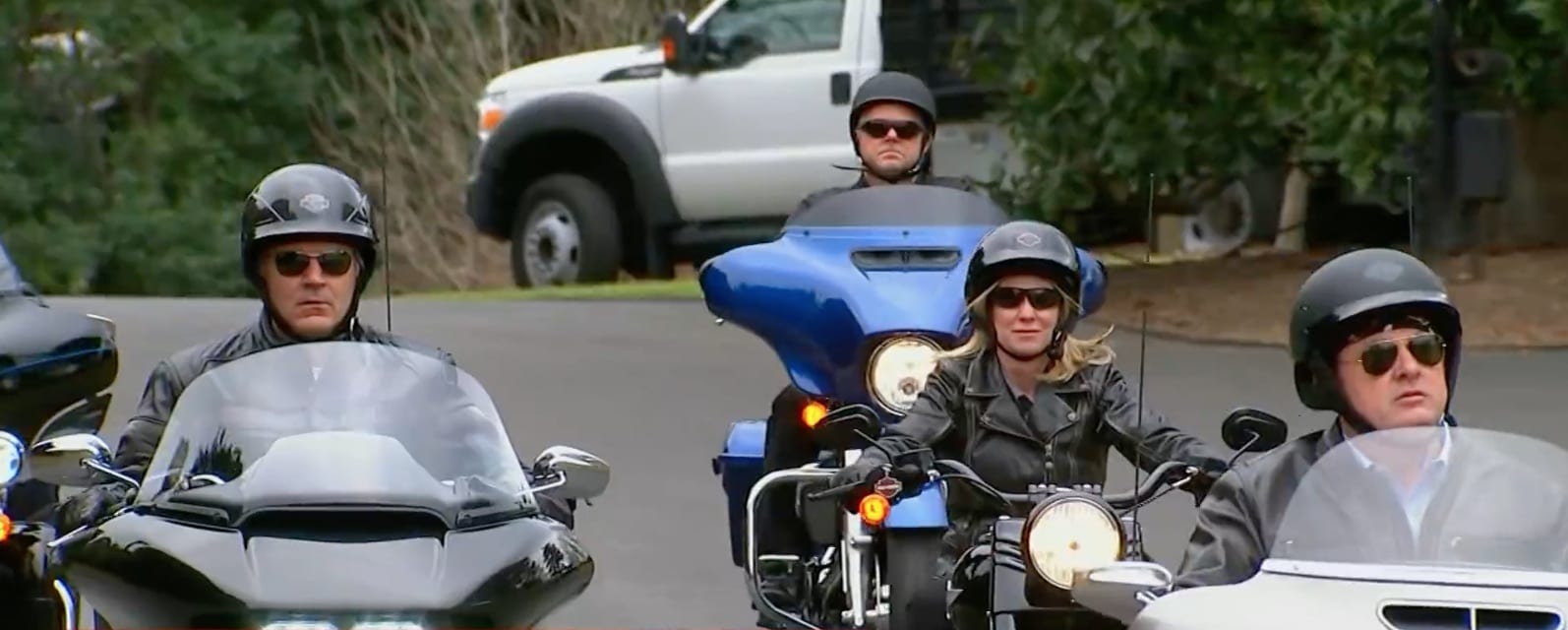President Trump had the gall to call for a boycott of Harley-Davidson over the weekend for its discussions of shifting some manufacturing overseas, as it tries to deal with the trade wars No. 45 has created.
Following the event “Bikers for Trump,” which the president hosted at his golf club in Bedminster, New Jersey, on Sunday, Trump tweeted that “Many @harleydavidson owners plan to boycott the company if manufacturing moves overseas. Great! Most other companies are coming in our direction, including Harley competitors. A really bad move! U.S. will soon have a level playing field, or better.”
Milwaukee-based Harley-Davidson remained tight-lipped following Trump’s criticism.
The company’s motorcycles are among the goods the European Union imports from the United States that could face higher tariffs in the aftermath of the extra duties that Trump imposed on steel and aluminum imported from the EU, Canada, and Mexico.
The tariff on the motorcycles will skyrocket from 6 percent to 31 percent. Harley-Davidson said in June the average extra cost to export one of its rides will be about $2,200. It expects the financial hit of the tariffs to its company to be between $30 million and $45 million for the remainder of 2018 and as much as $100 million next year.
“Increasing international production to alleviate the EU tariff burden is not the company’s preference, but represents the only sustainable option to make its motorcycles accessible to customers in the EU and maintain a viable business,” Harley-Davidson said in a regulatory filing.
At the time of that announcement, Trump tweeted that he was “surprised that Harley-Davidson, of all companies, would be the first to wave the White Flag.”
During the early days of his presidency, Trump enjoyed a healthy relationship with the company, posing for a photo-op with Harley-Davidson CEO Matthew Levatich beside some of the company’s motorcycles on the South Lawn of the White House in February 2017. Trump thanked the company for “building things in America.” Now the company faces a public-relations crisis due to its plan to shift some production to places like Thailand. Although Harley-Davidson motorcycles sold in America will still be made in America, the perception among some of the company’s loyal customers is that the company is bailing on its country and president.
As the New York Times pointed out, this past weekend during the famed annual bike rally in Sturgis, South Dakota, Trump’s criticism of the company’s decision “has put one of the country’s most iconic brands in the uncomfortable position of clashing with a president who is immensely popular with most of its customers.”
Jim Cramer, host of Mad Money on CNBC, said on Monday that Harley-Davidson’s move makes financial sense, but added “this is a direct slap in the face to the president that they are doing this.”
“You know how it works,” Cramer said on Squawk on the Street. “When you go exactly against [Trump], you have to face that there’ll be wrath.”
CNN-Money pointed out that Harley-Davidson sales are declining in the United States, but growing internationally. In the spring of 2018, the company’s sales dropped 12 percent in the U.S., but grew about 7 percent in Latin America, Europe, Africa, and the Middle East. The outlet pointed out the company likely wants to build more motorcycles closer to its growing customer base, but the tariffs arising from the trade wars are probably hastening the movement by many degrees.
Trump might be right that in the long term Harley-Davidson and other American manufacturers will face a more level playing field, but the company shouldn’t be criticized for preparing to deal with the short-term fallout, especially since it’s publicly traded and has to answer to investors. The better question to ask is if the tariffs have become a bridge-too-far when one of the most iconic American companies feels compelled to shift more operations overseas.
























